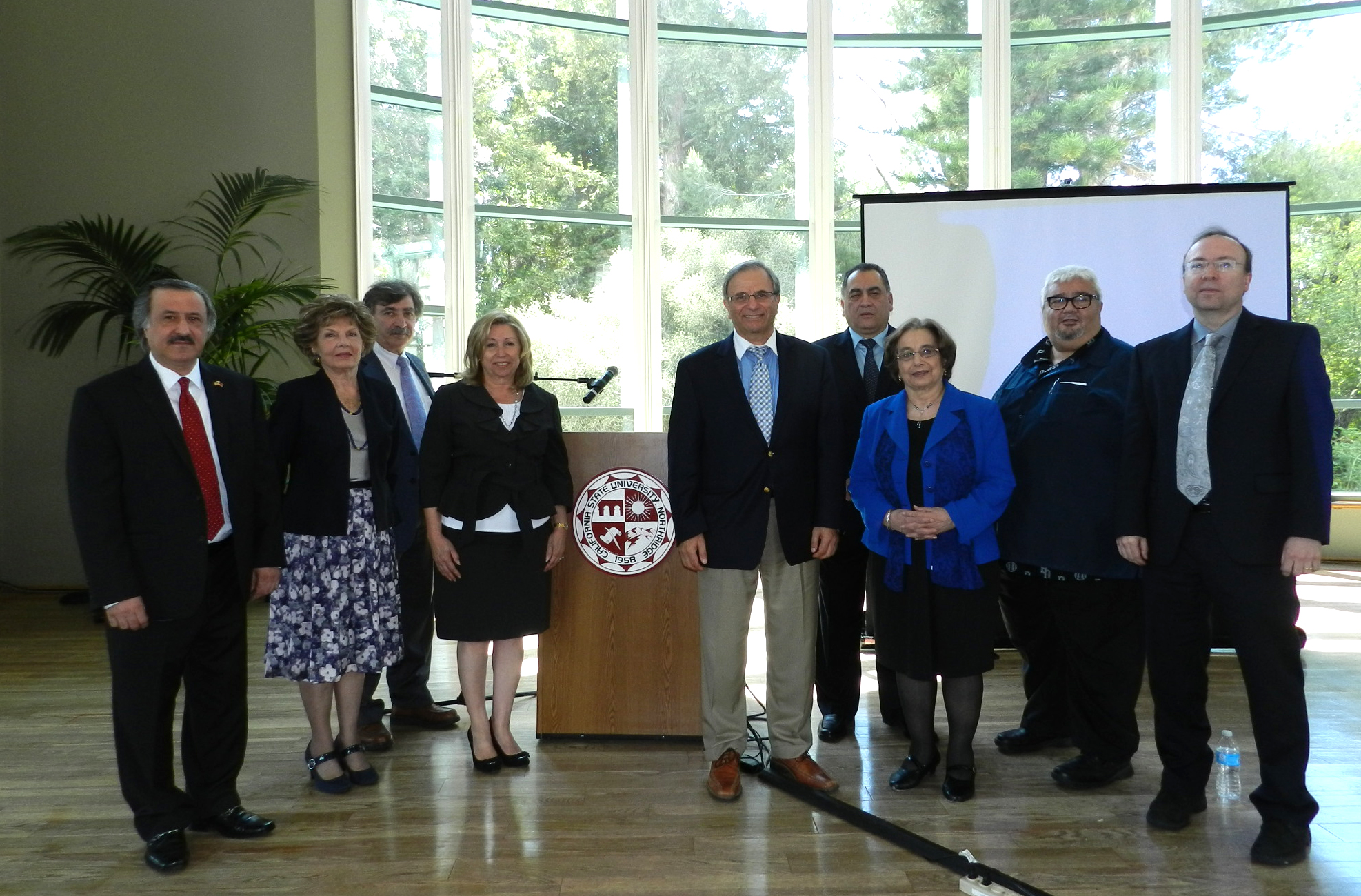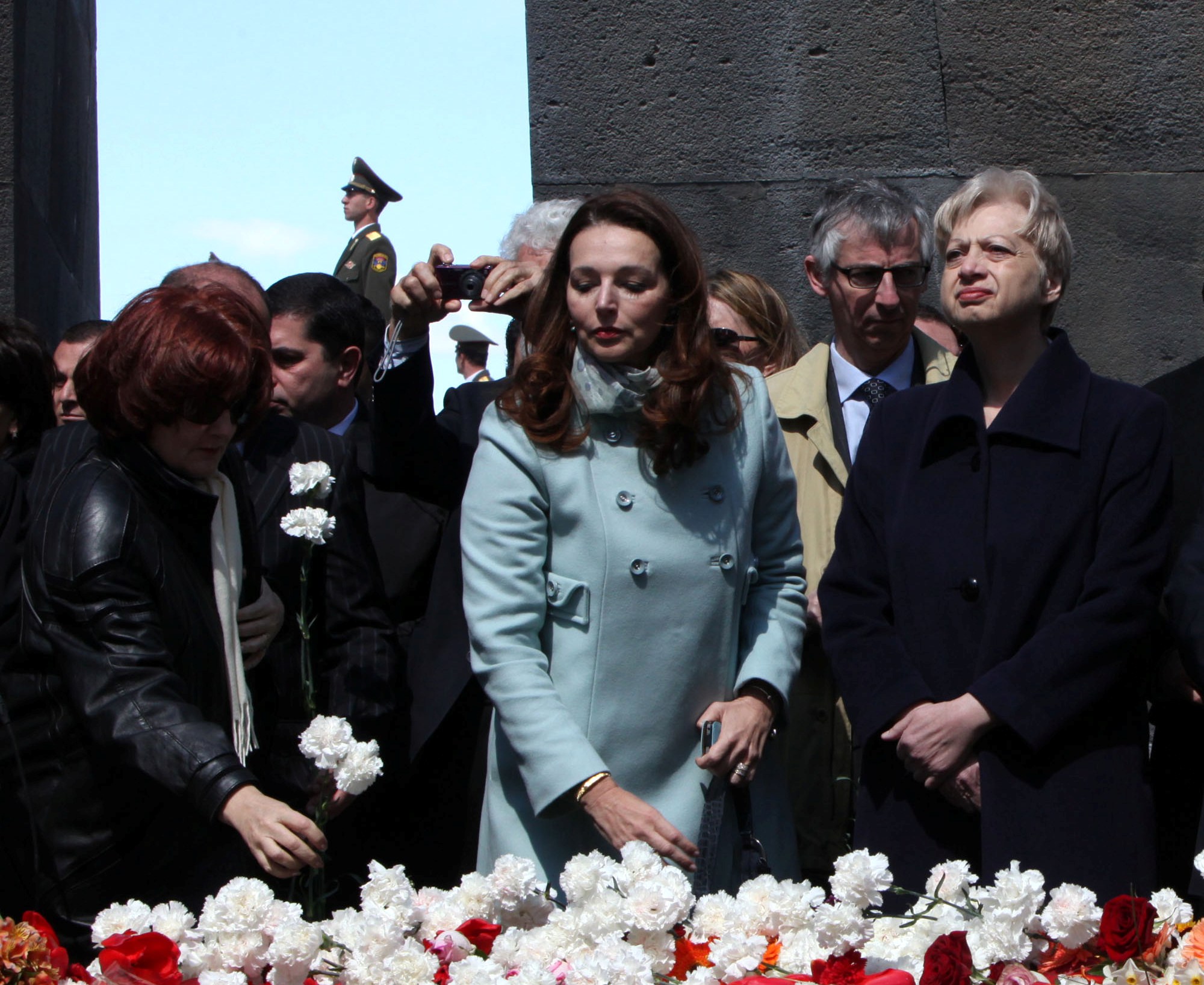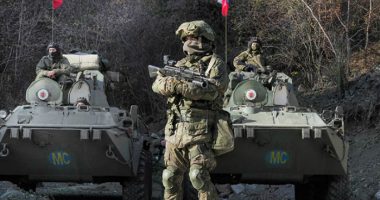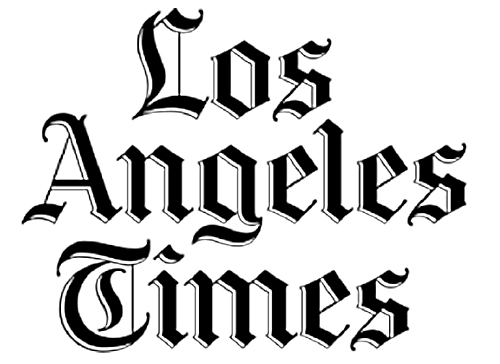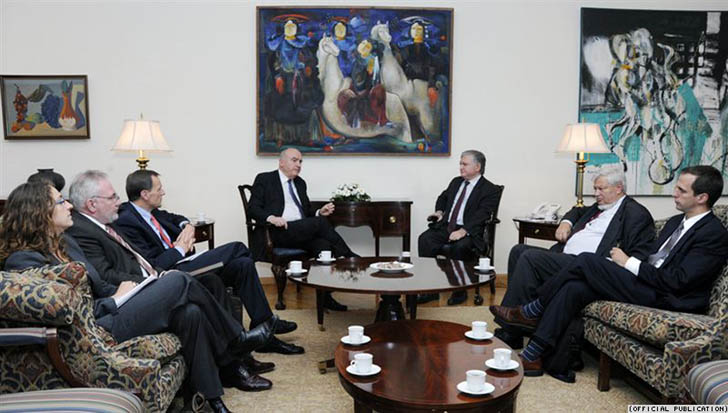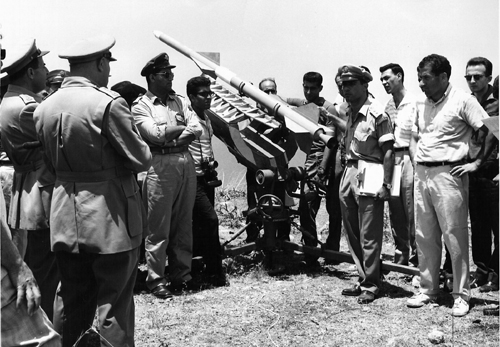NORTHRIDGE, CA — The Grand Salon of California State University, Northridge (CSUN), provided the setting for an academic conference exploring “Resistances to the Armenian Genocide” in the Ottoman Empire (1915-1923).
Dr. Vahram Shemmassian, Professor of Armenian Studies and Director of the Armenian Studies Program at CSUN, opened the Conference by pointing out the importance of continuing scholarship about the Genocide as its 100th anniversary in approaches in 2015. Opening remarks were also provided by John Kossakian, co-chair of the Los Angeles United Armenian Council for the Commemoration of the Armenian Genocide and principal of the Ferrahian Armenian School in Encino, CA.
An overview of the theme was provided by Dr. Rubina Peroomian, author and educator, in her talk “Armenian Resistance to the Genocide: An Assessment of Circumstances and Outcomes.” Peroomian traced the Ottoman Armenian population’s gradually increasing national awareness and determination to stand up for basic human rights, beginning with the 1862 Zeitun uprising and continuing in the 1890s with the peaceful rally at Bab-Ali, the Khanasor Expedition, the seizure of the Ottoman Bank, and the plot to assassinate Sultan Abdul Hamid. She went on to assess the impact of limited opportunities for resistance during the Genocide itself.
“Peaceful Resistance: American Missionaries in Wartime Turkey, 1914-1917” was the topic of the next presentation, by Dr. Barbara Merguerian, independent scholar and author. Merguerian pointed out that, as foreign nationals and as clergymen, educators, and medical personnel, the Americans were not in a position to offer any kind of military resistance; but they remained at their posts throughout the interior of Turkey and did all they could to attract attention to the atrocities taking place, to provide food and clothing to victims, and to find ingenious ways to save many individual Armenians, until the break in diplomatic relations between Turkey and the United States in April 1917 forced most of them to leave the country.
Dr. Garabet K. Moumdjian, an independent historian, followed with a presentation of “Muslim Resistance to the Armenian Genocide in the Southern Theater of War: Jemal Pasha and the 4th Army Corps.” His nuanced assessment of the Turkish leader Jemal Pasha, as well as other Ottoman governmental and military officials who, he said, were instrumental in saving the lives of some 150,000 to 200,000 Armenian deportees in the south, raised many questions from the audience. Moumdjian called for further scholarship to analyze the political, social, military, and other circumstances motivating Turkish leaders.
In the next presentation, “Post World War I Violence and Resistance in Cilicia,” independent scholar and editor Aram Arkun addressed conflicts that arose in Cilicia as Armenians began to return to their homes, the Turkish Nationalist movement grew, and the occupying British and French forces were forced to make difficult policy decisions. The French administration in particular, increasingly torn between promises made to the Armenians and demands from the local Turks, took contradictory positions until France decided to pull its forces out of Cilicia in exchange for economic concessions from Turkey. As a result, Armenians were left powerless and forced to flee from their homes once again.
The final speaker, Dr. Shemmassian, in his presentation about “The Musa Dagh Resistance in the Armenian Genocide Denial Campaign,” cited different forms of denial and falsification by Turkish and Turkish-leaning scholars, particularly Edward J. Erickson, a retired lieutenant colonel in the US Army, in an article in The Journal of Strategic Studies. Pointing out errors of fact, omissions, and faulty analysis that led Erickson to conclude falsely that the Armenians were engaged in a major military rebellion, Shemmassian concluded that, “nearly a century after the Armenian Genocide, we are still confronted with fabrications, falsehoods, and concoctions that aim to discredit and thus deny the fact of the Genocide.” The need to combat these falsifications continues to be as important today as ever.
Two lively discussion periods were ably presided over by the moderator, Dr. Levon Marashlian, Professor of History and Political Science at Glendale Community College. The participants were presented by Dr. Hasmig Baran, President of the Alumni and Friends of the SCUN Armenian Studies Program.
The conference was co-sponsored by Alumni and Friends of the CSUN Armenian Studies Program, the CSUN Department of Modern and Classical Languages and Literatures, and the Los Angeles United Armenian Council for the Commemoration of the Armenian Genocide.
The CSUN Armenian Studies Program (ASP) is currently celebrating its 30th anniversary with a a special banquet to be held on May 11. During those three decades the APS has rendered an invaluable service to the Armenian community in greater Los Angeles. As such, it has acquainted thousands of youth of Armenian origin and other nationalities with the Armenian language, literature, culture, and other related topics. These subject matters may lead to a Literatures and Cultures major with an Armenian Option, or an Armenian Minor. With a solid base of about 3,500 Armenian students on campus (10% of the total student body) each year, there is an urgent need for additional resources to further strengthen the ASP by establishing an endowed professorship ($500,000) and a number of scholarships. By doing so, the Program intends to prepare a new generation of teachers of Armenian Language, History and Culture, as well as future civic leaders. For further information about the Program or the banquet, you may contact Prof. Shemmassian at [email protected] or (818)677-3456.

